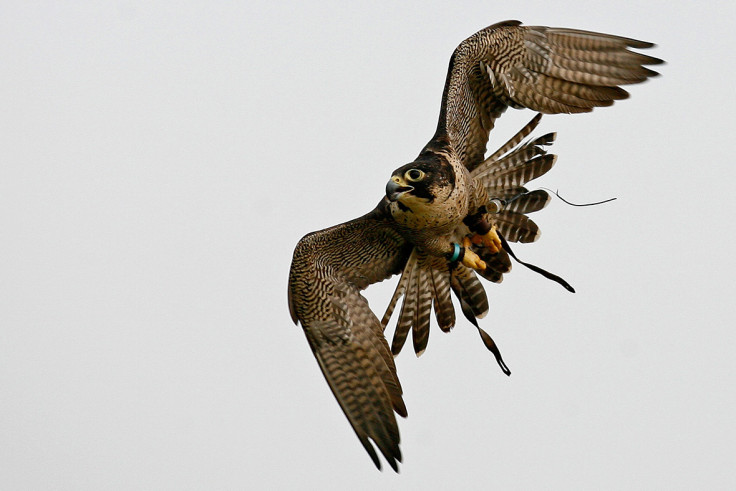Switzerland: Kamikaze pigeon dispatched to poison rare falcon lands bird breeder in deep doo-doo
Breeder faces Swiss prison spreading poison onto his pigeons causing agonising death of peregrine falcon.

A court in Dielsdorf, near Zurich, has convicted a man with multiple counts of animal cruelty after he was found guilty of poisoning a bird of prey with a kamikaze pigeon. The is the first time someone has been convicted of poisoning a prey bird in Switzerland, however, authorities and bird protection organisations hope this will set an example for other culprits of falcon killings.
A 42-year-old man confessed in August 2015 to spreading a banned and illegally-imported pesticide onto one of his 200 pigeons, before sending it out to fly. As he anticipated, the pigeon was caught and eaten by a peregrine falcon, which then suffered an agonising death as a result of the poison.
According to The Local, the Dielsdorf court heard that the man was part of a group of pigeon fanciers who participated in contests to see whose bird could stay airborne the longest, with the winner receiving a cash prize. Birds that fail to return because they have been eaten by prey falcons are disqualified from the contest.
The man's lawyer told the court that his client was only trying to protect his pigeons, who often fell victim to falcons. The man's sentence has not been confirmed but is likely to be 11 months in prison, alongside a fine of 4,000 franc.
Bird Life Schweiz (SVS) has been working to uncover the culprits behind falcon killings in Zurich. The organisation has erected webcams in a number of places in Zurich and has captured an incident that saw a falcon dying after eating a poisoned pigeon.
Speaking to The Local, deputy CEO of SVS, Chista Glauser, said: "Poisoning peregrines is a problem for many years. Especially with peregrines, which reproduce very slowly, it is a huge problem. In some regions the population has been reduced by 50%."
In a statement following the man's conviction, SVS welcomed the court's decision and stressed that this wasn't an isolated case. They hoped that the conviction would send a strong message to other pigeon breeders that poisoning birds of prey will not be tolerated.
© Copyright IBTimes 2025. All rights reserved.




















